Focus on removing legal bottlenecks
The report assessing the current situation and proposing solutions to improve the structure of the legal document system stated that since the Ministry of Trade and the Ministry of Industry merged to form the Ministry of Industry and Trade , the Ministry of Industry and Trade has developed, submitted to competent authorities for promulgation and promulgated under its authority up to 1,114 documents, with nearly 500 documents currently in effect related to most sectors and fields of the national economy and having a great impact on the production and business activities of enterprises as well as the lives of the people.
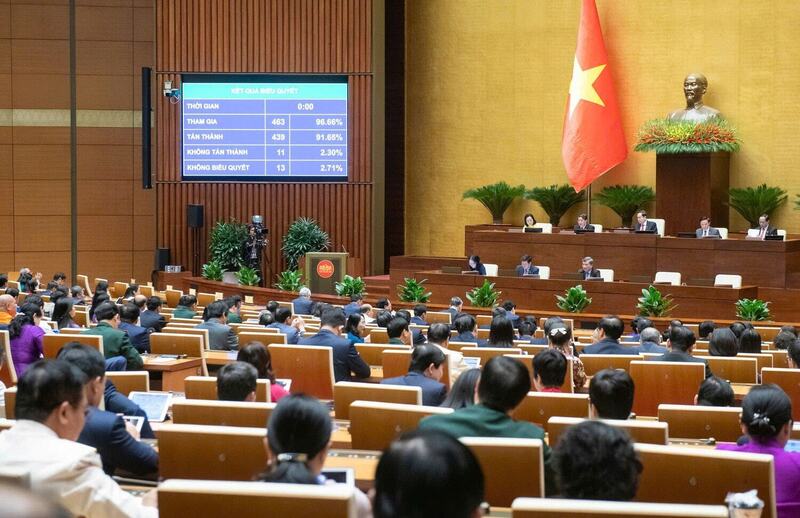
The Ministry of Industry and Trade has drafted, submitted to competent authorities for promulgation and promulgated under its authority up to 1,114 documents. Illustrative photo
Accordingly, the documents are all built on the basis of timely institutionalization of the Party's policies and guidelines, the practical requirements of the country's socio -economic development; in line with the process of deep integration into the world economy. At the same time, practical results show that, with a relatively complete and comprehensive legal system, the Industry and Trade sector has developed strongly, making a great contribution to the national GDP structure. Specifically, in the period 2007 - 2025, import-export turnover increased nearly 9 times; total goods circulation increased 8 times; industrial production developed strongly, in which processing and manufacturing industry was a bright spot; total electricity output increased nearly 5 times...
The total number of 500 documents currently in force is arranged in specific order as follows: Laws and Resolutions of the National Assembly including 11 documents; Ordinances and Resolutions of the National Assembly Standing Committee including 2 documents; 72 Decrees of the Government and 34 Decisions of the Prime Minister; 362 Circulars of Ministers and 10 Joint Circulars.
Regarding the legal system on trade, the Ministry of Industry and Trade said that the groups of sectors and fields are detailed, including: Domestic trade; import and export, border trade; foreign market development; market management; trade promotion; e-commerce; trade services; international economic integration; consumer rights protection, trade defense.
The core of the commercial legal system is the 2005 Commercial Law; followed by the Law on Foreign Trade Management passed by the National Assembly in 2016 - the key law regulating foreign trade management activities; the 2023 Consumer Protection Law contributes to protecting the legitimate rights and interests of consumers. At the same time, the National Assembly Standing Committee passed the Market Management Ordinance, effective from September 1, 2016. The Competition Law was issued in 2004 and completed in 2018.
For the industrial legal system, groups of industries and legal fields in specific legal fields include: Chemicals, industrial explosives, mechanical industry, metallurgy, mining and mineral processing industry, consumer industry, food industry, supporting industry, environmental industry, industrial clusters, small-scale industry, industrial promotion. Typical in this group is the Law on Chemicals 2025.
For the legal system on energy: Electricity, coal, oil and gas, new energy, renewable energy. Electricity Law 2024, Law on Economical and Efficient Use of Energy 2010 and Law on amending and supplementing a number of articles of the Law on Economical and Efficient Use of Energy 2025, Law on Petroleum 2022.
The report assessed that the work of law-making was consistent with the 2013 Constitution, consistent with and effectively institutionalized the Resolutions and Conclusions of the Politburo, the Secretariat, and the Official Dispatches and directives of the Government and the Prime Minister related to the two-level local government model; focused on and resolutely implemented effectively the assigned tasks in the Resolutions and Conclusions of the Politburo, the Secretariat, and directives of the Government and the Prime Minister on institutional building and improvement; focused on reviewing the orientations, requirements, and directives in the four pillar Resolutions of the Politburo and proposing legislative tasks of the 16th National Assembly in the Industry and Trade sector.
Accordingly, the work of building and perfecting the law of the Industry and Trade sector through stages with the clear goal of focusing on removing legal bottlenecks, creating a favorable and equal business environment for all organizations, enterprises and people to develop production and business, thereby strongly improving the business environment and enhancing national competitiveness.

Perfecting the law of the Industry and Trade sector aims to create a favorable and equal business environment for all organizations and enterprises. Illustrative photo
Promoting legal improvement in the 2026 - 2030 period
The legal system of the Industry and Trade sector is assessed to be comprehensive and comprehensive in terms of quantity, but in each specific field, there are still regulations that have not been fully specified (such as futures trading, key industries, platforms, etc.). Some legal fields are not highly predictable, have not been updated in time with new issues and new trends that need to be regulated by law, and the adaptability of some regulations to rapid changes in practice is still limited.
According to the orientation of perfecting the law within the scope of state management of sectors and fields in the period of 2026 - 2030 and the following periods, in the Report, the Ministry of Industry and Trade said that the period of 2026 - 2030 is forecasted to be an important and strategic period in the process of developing the country in a fast and sustainable direction.
Pursuant to the Resolution of the Party Congress and documents, resolutions, conclusions and directives of the Central Executive Committee, the Politburo and the Secretariat for the 2021 - 2025 period, especially the four key Resolutions issued in the past time, including: Resolution 57-NQ/TW; Resolution No. 59-NQ/TW; Resolution No. 66-NQ/TW dated April 30, 2025; Resolution No. 68-NQ/TW dated May 4, 2025.
In order to institutionalize the Party's viewpoints and policies on continuing to innovate and streamline the political system's apparatus to operate effectively and efficiently, the Ministry of Industry and Trade continues to amend a number of regulations on decentralization, delegation of authority, and division of authority in the industrial and commercial fields in the Laws in accordance with the 2013 Constitution and Resolution 203/2025/QH15 of the National Assembly amending and supplementing a number of Articles of the 2013 Constitution.
In addition, perfecting the law on trade and competition to fully institutionalize the rights and obligations of the parties in commercial business activities in accordance with the practical operation, development trends and international practices as well as the context of the 4.0 industrial revolution, encouraging the comprehensive development of all types of commercial infrastructure. In addition, perfecting the mechanism to protect the right to freedom of business according to the principle that citizens are allowed to do everything that is not prohibited by law.
Create a legal basis for people and businesses to actively mobilize all potentials and resources and develop production and business; create a legal environment for healthy and equal competition, in accordance with WTO principles and other international commitments according to Resolution No. 68-NQ/TW dated May 4, 2025 of the Politburo on private economic development.
Perfecting industrial laws to strongly institutionalize the Party's requirements in developing key industries, promoting the localization of industrial production in key sectors. Perfecting energy laws to institutionalize the Party's viewpoints and policies in ensuring energy security in the new era.
The drafting of legal documents by the Ministry of Industry and Trade has complied with the provisions of the law in collecting opinions from people, businesses, organizations and related individuals. From there, the documents are absorbed to be feasible and suitable to objective practical conditions. The quality of law-making is also focused on improving, the level of perfection in terms of content as well as legislative techniques of legal documents is suitable to the actual situation of the country, the requirements of state management in the industry and trade sector and the orientations of the National Assembly and the Government.
Source: https://congthuong.vn/hoan-thien-phap-luat-nganh-cong-thuong-giup-nang-cao-nang-luc-canh-tranh-429593.html








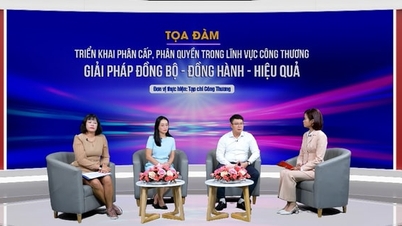


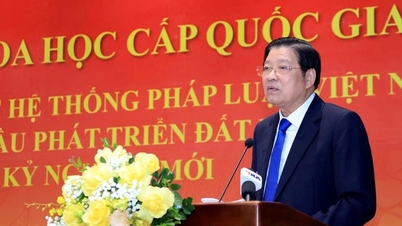

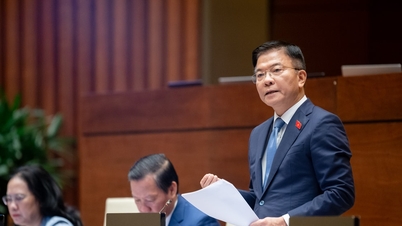







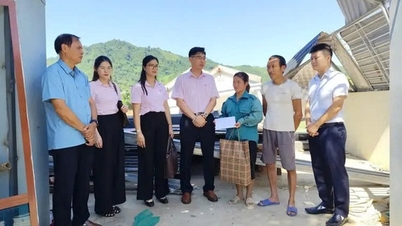





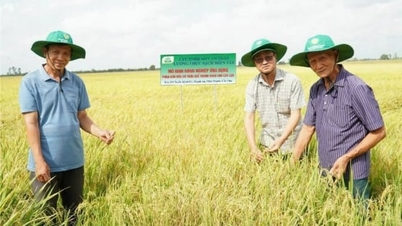




















![[Video] Hue Monuments reopen to welcome visitors](https://vphoto.vietnam.vn/thumb/402x226/vietnam/resource/IMAGE/2025/11/05/1762301089171_dung01-05-43-09still013-jpg.webp)










































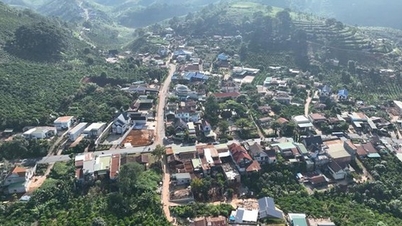


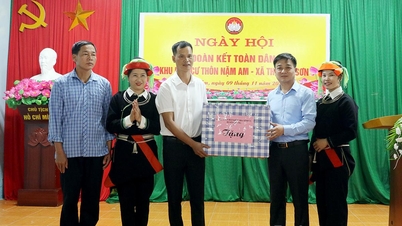

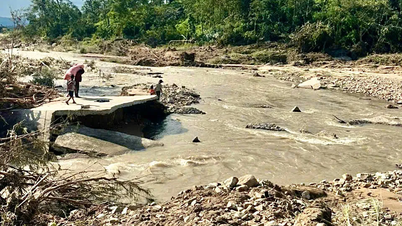



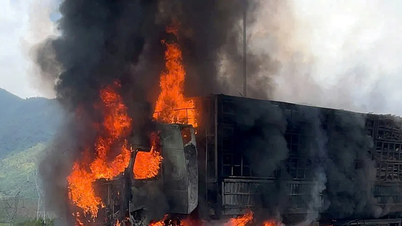
![Dong Nai OCOP transition: [Part 2] Opening new distribution channel](https://vphoto.vietnam.vn/thumb/402x226/vietnam/resource/IMAGE/2025/11/09/1762655780766_4613-anh-1_20240803100041-nongnghiep-154608.jpeg)












Comment (0)